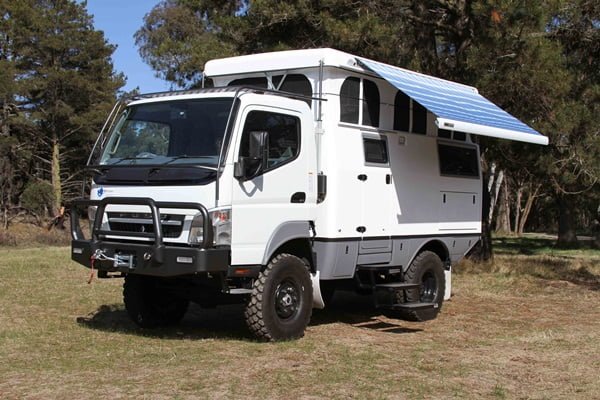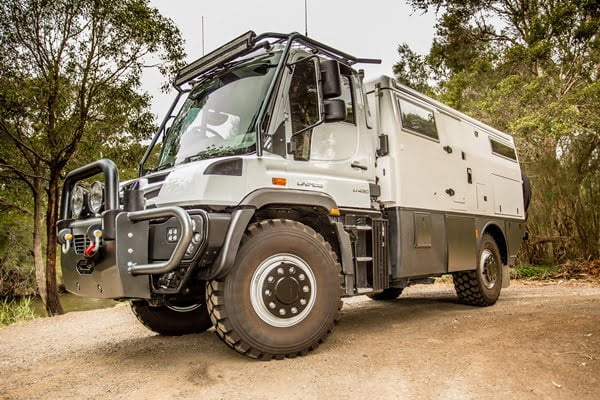Many people that travel need an upgraded license to drive their motorhome or bus. The question is often asked of me – “how do i get an upgraded license”.
Well I thought the best explanation of this was direct from the RMS website in NSW. Please check your individual state regulations. There will , or should be, a similar explanation on each website for each state.
Getting a heavy vehicle licence
In order to drive a heavy vehicle, we buy any motorhome you need a licence of the appropriate class.
The primary way to obtain a heavy vehicle licence is to complete Heavy Vehicle Competency Based Assessment (HVCBA) with a Registered Training Organisation. In areas where HVCBA is not available, you can take a heavy vehicle driving test with a Roads and Maritime testing officer.

Heavy vehicle licence classes
This list shows the classes of heavy vehicle licences issued by Roads and Maritime. You can drive any class of vehicle appearing below your licence class in the list, except motorcycles.
At the highest level is an MC licence, which allows you to drive all types of vehicles except motorcycles.
Click on the link for more detailed information about each licence class:
- MC – Multi Combination – B-doubles, prime mover, low loader dolly and low loader combinations, road trains
- HC – Heavy Combination – heavy articulated vehicles
- HR – Heavy Rigid – heavy rigid trucks or buses (including articulated buses)
- MR – Medium Rigid – medium rigid trucks or buses
- LR – Light Rigid – small buses or trucks
- C – car


LR – Light Rigid
LR vehicles include:
- Small trucks with a gross vehicle mass (GVM) up to 8 tonnes. Any towed trailer must not weigh more than nine tonnes GVM
- Buses that seat more than 12 adults including the driver and a GVM up to 8 tonnes
To apply for an LR licence, you must:
- Have held a class C licence, (except a learner licence) or equivalent for one year or more. Any time you’ve spent on a P1 licence counts, but you can’t practice to drive an LR vehicle, or upgrade to an LR licence until you hold a P2 or full class C licence
- Pass the LR knowledge test
- Pass an eyesight test
- Successfully complete HVCBA, or pass a Roads and Maritime driving test.


MR – Medium Rigid
MR vehicles include:
- Trucks and buses with a GVM more than eight tonnes and two axles
- Any towed trailer must not weigh more than nine tonnes GVM.
To apply for an MR licence, you must:
- Have held a class C licence, (except a learner licence) or equivalent for one year or more. Any time you’ve spent on a P1 licence counts, but you can’t practice to drive an MR vehicle, or upgrade to an MR licence until you hold a P2 or full class C licence
- Pass the MR knowledge test
- Pass an eyesight test
- Successfully complete HVCBA, or pass a Roads and Maritime driving test.

HR – Heavy Rigid
HR vehicles include:
- Trucks and buses with a GVM more than eight tonnes, and three or more axles
- Any towed trailer must not weigh more than nine tonnes GVM
- Bendy buses. Even though these vehicles are articulated, they’re treated as rigid vehicles.
To apply for an HR licence, you must:
- Have held a class C licence, (except a learner licence) or equivalent for two years or more. Any time you’ve spent on a P1 licence counts, but you can’t practice to drive an HR vehicle, or upgrade to an HR licence until you hold a P2 or full class C licence
- Pass the HR knowledge test
- Pass an eyesight test
- Successfully complete HVCBA, or pass a Roads and Maritime driving test.

HC – Heavy Combination
HC vehicles include:
- Articulated vehicles with three or more axles
- Heavy rigid vehicle trailer combinations including unladen dolly, with three or more axles
- Any towed trailer with a GVM more than nine tonnes.
To apply for an HC licence, you must:
- Have held a class MR or HR licence or equivalent for one year or more. Any time you’ve spent on a P2 MR or HR licence counts, but you can’t practice to drive an HC vehicle, or upgrade to an HC licence until you hold a full class MR or HR licence
- Pass the HC knowledge test
- Pass an eyesight test
- Successfully complete HVCBA, or pass a Roads and Maritime driving test.
MC – Multi Combination
MC vehicles include:
- B-doubles
- Prime mover, low loader dolly and low loader trailer combinations
- Road trains.

To apply for an MC licence, you must:
- Have held a Class HR or HC licence or equivalent for at least one year. Any time you’ve spent on a P2 HR licence counts, but you can’t practice to drive an MC vehicle, or upgrade to an MC licence until you hold a full class HR or HC licence
- Pass an MC knowledge test
- Pass an eyesight test
- Successfully complete HVCBA. If you hold an HR licence, you’ll need to pass an HC assessment before you can start MC training
- Pass a medical examination.
Heavy Vehicle Competency Based Assessment (HVCBA)
The primary method to get a heavy vehicle licence is to complete a Heavy Vehicle Comptencey Based Assessment (HVCBA) with an accredited Registered Training Organisation (RTO).
HVCBA provides the flexibility for your to choose your own trainer. You can also learn, and be assessed, in a vehicle of your choice, and arrange your own appointment times with your trainer. See Heavy Vehicle Competency Based Assessment (HVCBA) for more information.
HVCBA may not be available in all areas of NSW. In these areas, you can take a heavy vehicle driving test with a Roads and Maritime testing officer.
Information for assessors
If you are an HVCBA assessor, or are interested in becoming accredited as an assessor, see Driving Instructors – HVCBA Scheme.
Heavy vehicle driving test
In areas where HVCBA is not available, you can take a heavy vehicle driving test with a Roads and Maritime testing officer. Please note, not all locations offer heavy vehicle testing.
Applicants for licence class MC are not eligible to complete a heavy vehicle driving test. Applicants for a class MC licence must complete HVCBA.
Important: Before you can take the driving test, you must have passed the knowledge test for the class of licence you’re applying for.
See Heavy vehicle driving tests for more information.
In-cabin camera
Since 1 December 2014, in-cabin video camera and GPS technology have been rolled out to improve the integrity of the HVCBA Scheme by mitigating fraud and corruption risks. RTOs monitor HVCBA Final Competency Assessments (FCA) completed by assessors for the issue of heavy vehicle driver licences.
- A video camera must be in operation inside the cabin of the heavy vehicle during the FCA/CT in order to capture and record the end-to-end on road assessment
- Your assessor will read out at the beginning and end of each FCA/CT.
The industry must be fully compliant with change by 1 September 2015.
Vehicles for assessments and tests
You can learn and be assessed or tested in your own vehicle, as long as it is registered and roadworthy, and the right type of vehicle for the licence class you’re applying for.
The vehicle you use for the test must also have a lap-sash retractable seat belt fitted to the front passenger seat for the assessor or testing officer, except for MR and HR buses.
Vehicles for HR, HC and MC licence tests must meet additional minimum standards:
- HR: The test vehicle must be at least a 3-axle rigid vehicle with a GVM of more than 15 tonnes, excluding bobtail prime mover
- HC: The test vehicle must be at least a 3-axle prime mover with a minimum 2-axle semi-trailer, or a heavy rigid vehicle plus trailer over nine tonnes GVM
- MC (HVCBA assessments only): The test vehicle must be at least a 3-axle prime mover with an A and B trailer, each with bogie axles. The vehicle must be B-double rated and a minimum of 22 metres in length, in B-double configuration.
Test vehicles must also be loaded to at least 75% of the maximum mass allowable for the vehicle, except for buses. This means at least 75% of the:
- Legal mass limit
- The Gross Vehicle Mass (GVM) for rigid vehicles, or
- The Gross Combination Mass (GCM) for articulated or heavy trailer combinations
whichever is the lowest.
Vehicles which cannot be used for testing and assessment
The following vehicles must not be used for a driving test or HVCBA:
- Armoured security vehicles
- Vehicles carrying dangerous goods
- Federal Interstate registered vehicles
- Vehicles carrying livestock
- Vehicles carrying traders’ plates
- Vehicles that are not mechanically roadworthy
- Any heavy vehicle fitted with a dual accelerator or a dual steering wheel
- Buses carrying passengers
- Special Purpose Vehicles
- Vehicles registered for primary production
- Veteran and vintage vehicles.
Automatic/synchromesh condition
If you’re assessed for your heavy vehicle licence (whether through HVCBA or a driving test) in a vehicle with an automatic or synchromesh gearbox, a condition will be added to your licence. This means you’ll only be permitted to drive vehicles with a similar transmission.
To have the automatic/synchromesh condition removed from your licence, you need to be assessed driving a vehicle fitted with a constant mesh gearbox. This assessment can be either through a Competency Test with an accredited HVCBA provider, or in a shortened version of a Roads and Maritime driving test.
